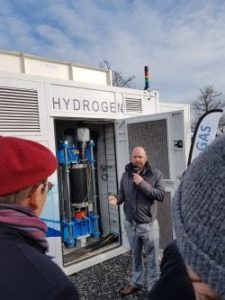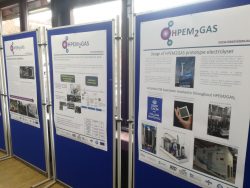How does the hydrogen combustion car work? Discover its innovative technology

Hydrogen cars are one of the most promising innovations in the automotive world. Using hydrogen as a fuel instead of petrol or diesel, these vehicles offer a cleaner and more sustainable alternative for personal transport. In this article, we will take a closer look at the technology behind hydrogen combustion cars, how they work and what their advantages and disadvantages are.
What is a hydrogen combustion car?
Before explaining how an internal combustion engine that uses hydrogen gas as fuel works, it is important to understand what it is. This type of internal combustion engine works in a similar way to conventional engines that use petrol or diesel, but instead of using these fossil fuels, it uses hydrogen gas as fuel.
How does fuel cell technology work?
In a hydrogen internal combustion engine, hydrogen gas is combined with air and burned in a combustion chamber to produce the energy needed to move the vehicle. The result of this reaction is the release of water vapour, rather than carbon dioxide and other polluting gases emitted by conventional internal combustion engines.
Although hydrogen gas is a clean and efficient fuel, it is not yet widely used in internal combustion engines due to a lack of supply and storage infrastructure. However, it is expected that in the near future technology will advance sufficiently to make hydrogen internal combustion engines a viable and more sustainable option for transport.
Advantages and disadvantages of hydrogen cars
Hydrogen cars have some significant advantages over conventional cars. First, hydrogen is a very clean source of energy, as the only by-product of its combustion is water. Secondly, hydrogen cars are more energy efficient than conventional cars, as the energy generated in the fuel cell is used much more efficiently than in an internal combustion engine. However, there are also some disadvantages to consider. First, hydrogen cars are relatively expensive to produce, making them less affordable for most consumers. Secondly, hydrogen infrastructure is limited in most places, making it difficult to refill the hydrogen tank while travelling.
Conclusion
In summary, hydrogen cars offer a clean and sustainable alternative to conventional cars, with fuel cell technology enabling greater energy efficiency and zero greenhouse gas emissions.

























